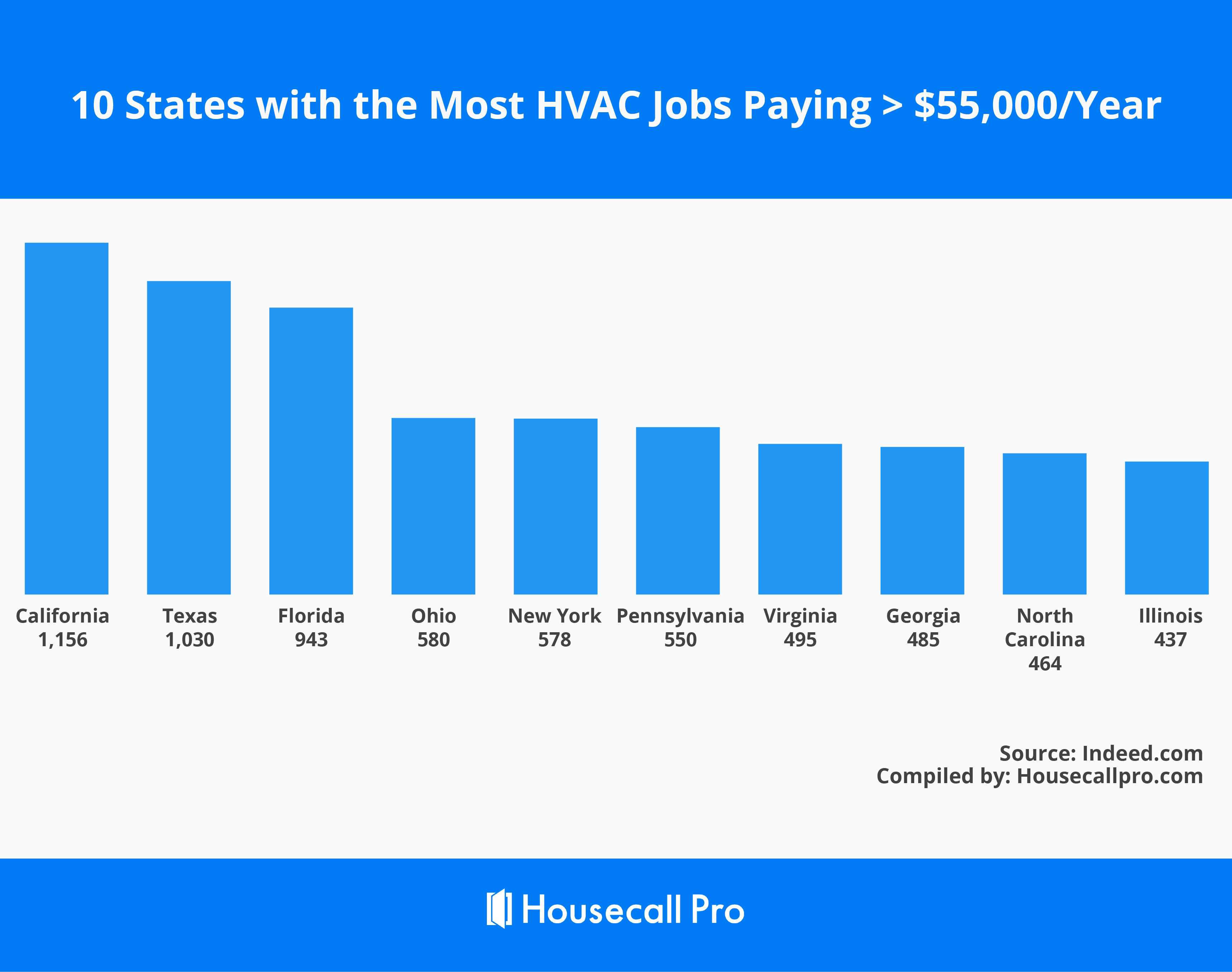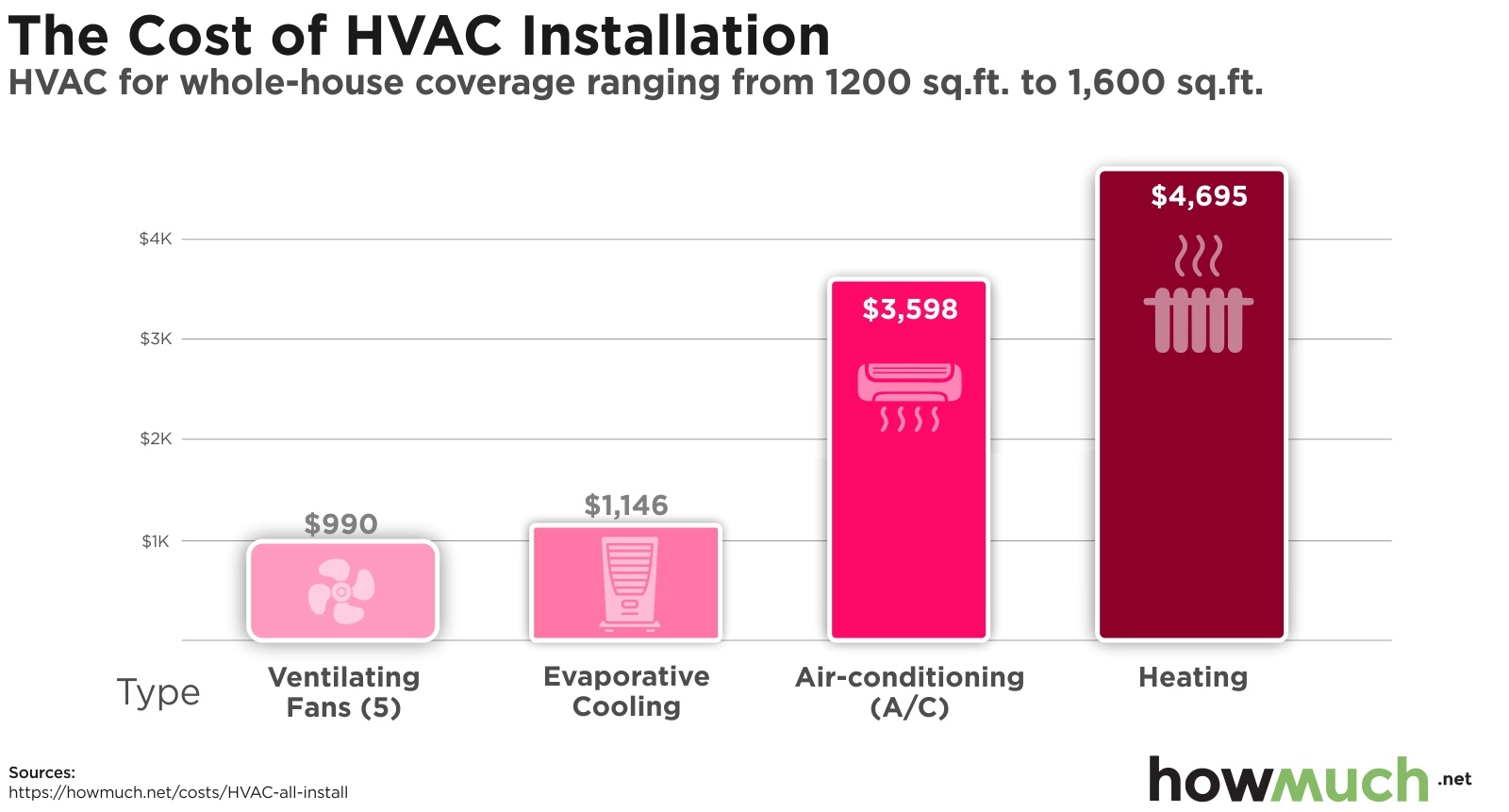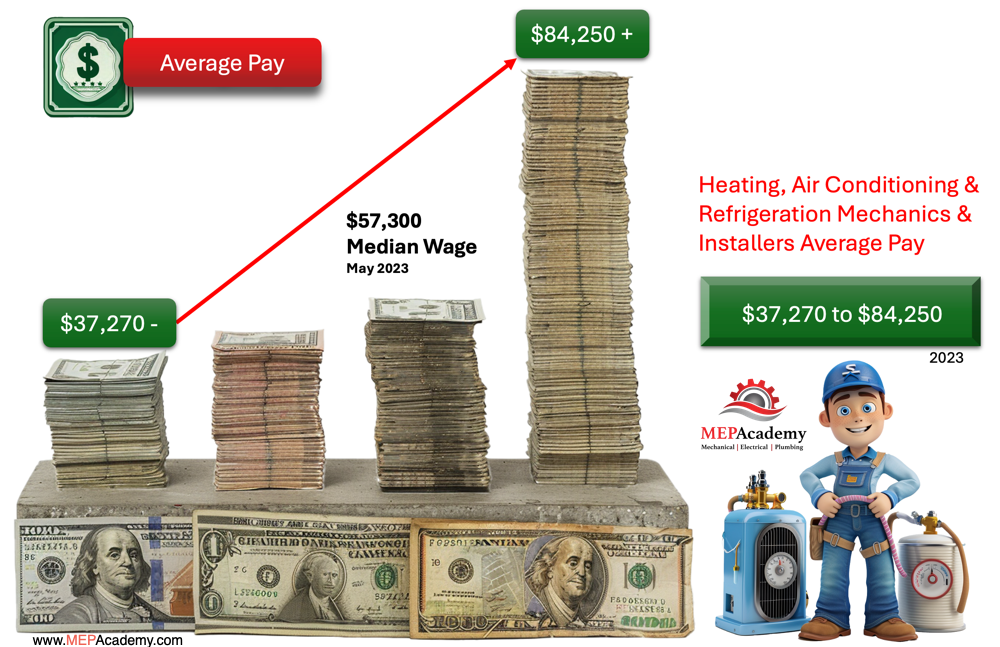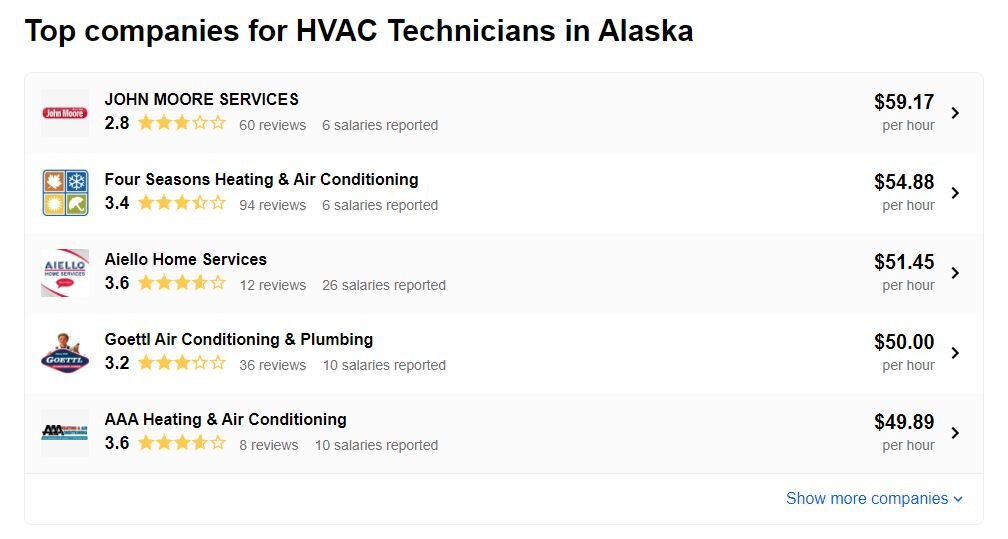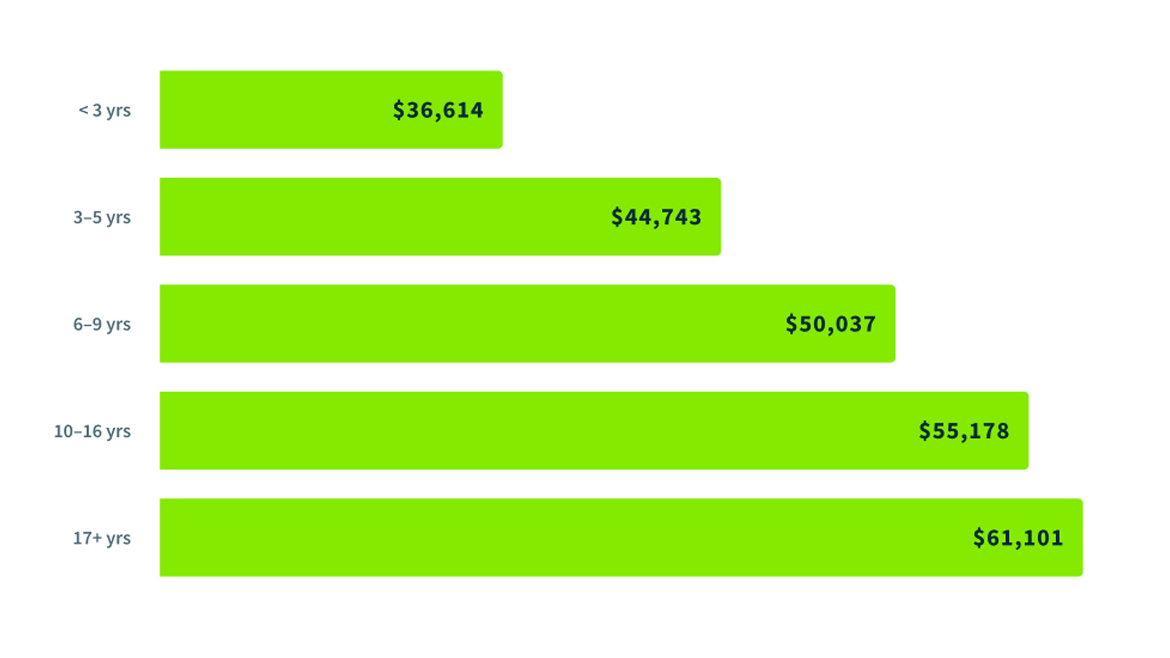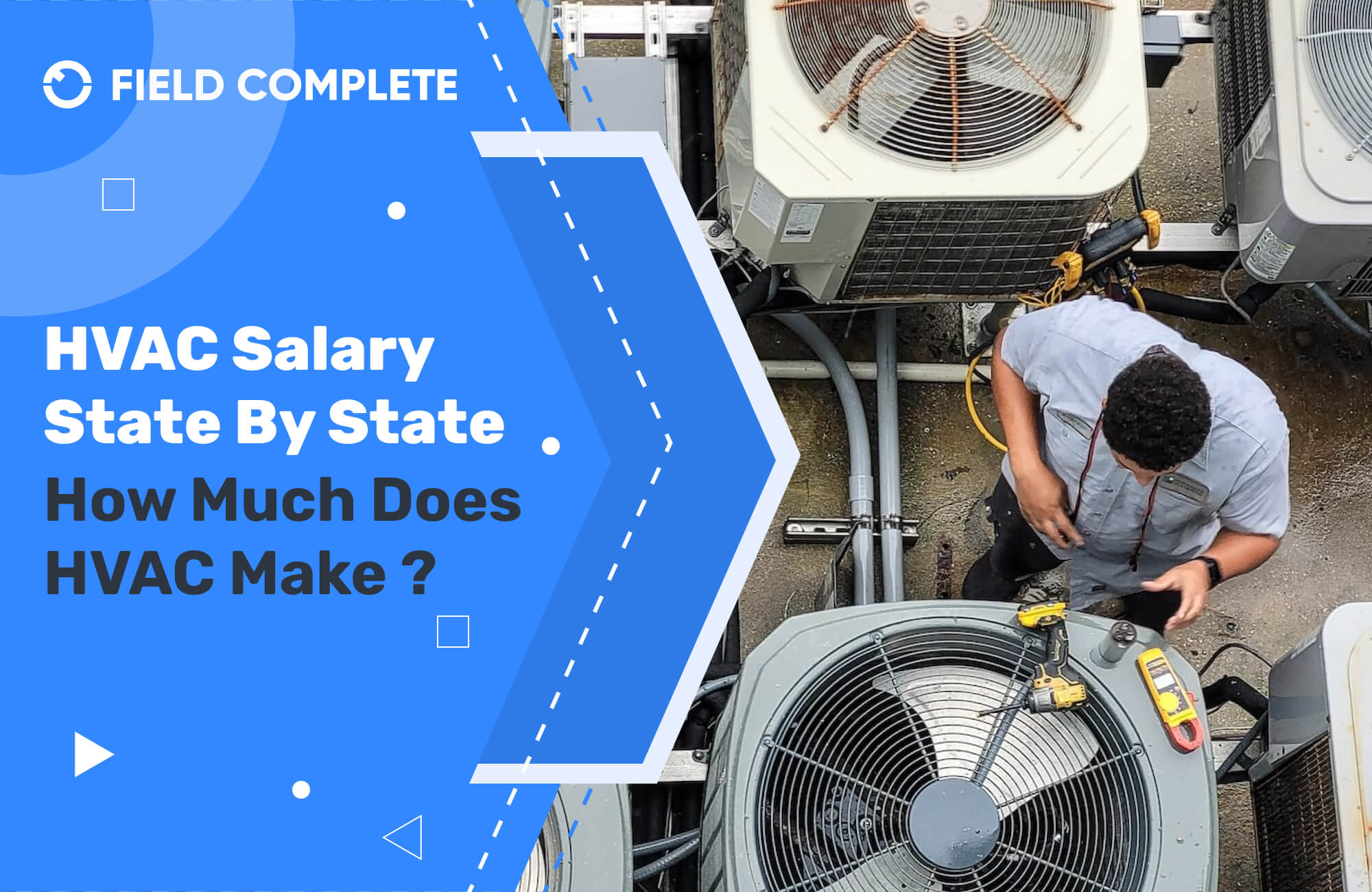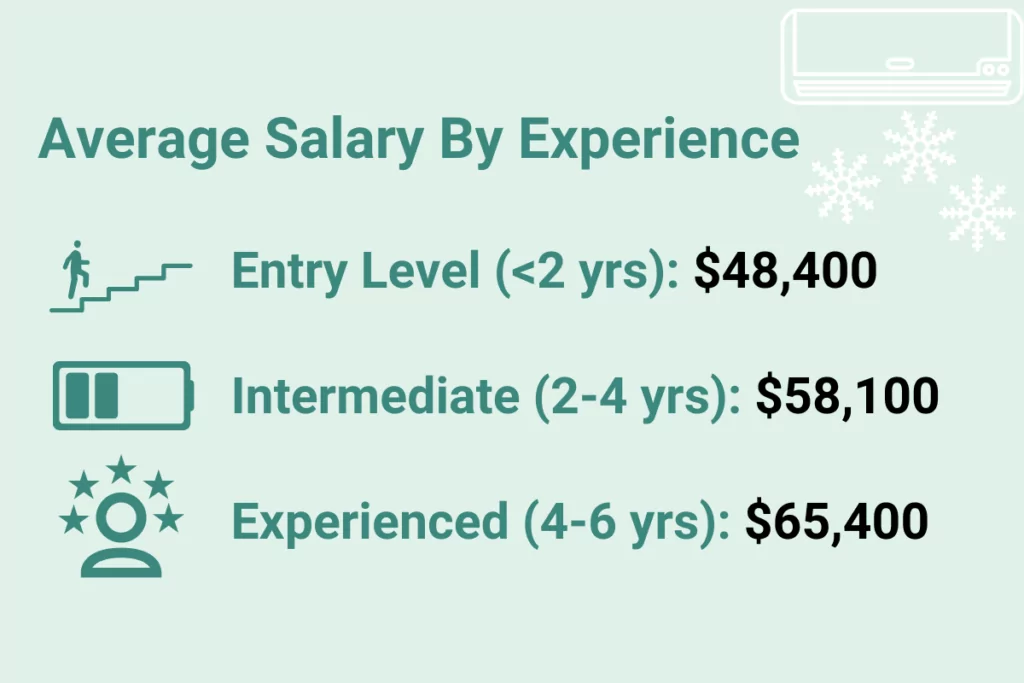How Much Does The Average Hvac Tech Make

Let's talk about HVAC technicians and what they earn. It's a common question, especially if you're considering a career in the field, hiring one for repairs, or just curious about the skilled trades. While there's no single answer, understanding the factors that influence an HVAC tech's salary can help you budget for repairs, evaluate job offers, or simply appreciate the expertise that goes into keeping your home comfortable.
Factors Influencing HVAC Technician Salaries
Several elements contribute to the wide range of salaries you might see quoted for HVAC technicians. These include:
- Experience Level: Entry-level technicians (apprentices or those with minimal experience) naturally earn less than seasoned professionals with years of on-the-job training.
- Location: Cost of living plays a significant role. Technicians in areas with higher living expenses, like major metropolitan cities, generally command higher salaries. The demand for HVAC services in a particular region also affects pay.
- Education and Certifications: Holding certifications like the NATE (North American Technician Excellence) certification or completing specialized training programs demonstrates competence and can lead to increased earning potential. A degree in HVAC technology can also open doors to higher-paying positions.
- Specialization: Some technicians specialize in specific areas, such as commercial refrigeration, industrial HVAC systems, or energy-efficient technologies. These specializations often require advanced training and can result in higher salaries.
- Employer Type: The type of company an HVAC technician works for can also influence their pay. Large national companies, smaller local businesses, union shops, and self-employment all have different compensation structures.
- Union Membership: HVAC technicians who are members of a union typically receive higher wages and benefits than their non-union counterparts.
- On-Call Availability: Technicians who are willing to be on-call for emergency repairs often receive additional compensation.
Average HVAC Technician Salary Ranges
Nationally, the average salary for HVAC technicians falls within a broad range. You might see figures ranging from $45,000 to $75,000 per year. However, it's crucial to remember that this is just an average, and actual earnings can vary significantly based on the factors mentioned above. Here's a more detailed breakdown:
- Entry-Level (0-2 years of experience): $35,000 - $50,000 per year
- Mid-Level (3-5 years of experience): $50,000 - $65,000 per year
- Experienced (5+ years of experience): $65,000 - $85,000+ per year
Supervisory roles, project management positions, and technicians with highly specialized skills can earn significantly more, sometimes exceeding $100,000 annually.
Beyond Salary: Benefits and Perks
When evaluating an HVAC technician's compensation, it's important to consider the entire package, not just the base salary. Benefits and perks can significantly impact overall earning potential and job satisfaction. Common benefits include:
- Health Insurance: Medical, dental, and vision coverage
- Paid Time Off: Vacation, sick leave, and holidays
- Retirement Plans: 401(k) or pension plans
- Company Vehicle: For service calls and transportation to job sites
- Tool Allowance: To help cover the cost of essential tools
- Training and Education: Opportunities for professional development and certification
- Overtime Pay: For work performed outside of regular business hours
The Cost of HVAC Repairs: How Tech Salaries Factor In
When you hire an HVAC technician for a repair, you're not just paying for their time; you're also paying for their expertise, training, and the overhead costs associated with running a business. A portion of the technician's salary is factored into the overall cost of the service call. Other cost components include:
- Parts: The cost of replacement parts for your HVAC system
- Labor: The technician's hourly rate
- Trip Charge: A fee to cover the cost of travel to your home
- Overhead: Business expenses like insurance, vehicle maintenance, and office administration
While DIY repairs can save you money in the short term, it's important to weigh the risks against the potential rewards. Incorrect repairs can damage your HVAC system, void warranties, and even pose safety hazards. When in doubt, it's always best to call a qualified HVAC professional.
DIY Troubleshooting: When to Attempt and When to Call a Pro
Before calling a technician, there are a few simple troubleshooting steps you can try yourself:
- Check the Thermostat: Ensure it's set to the correct temperature and mode (heating or cooling). Make sure the batteries are fresh.
- Inspect the Air Filter: A dirty air filter can restrict airflow and cause your HVAC system to work harder. Replace it regularly (every 1-3 months).
- Check the Breaker: Make sure the circuit breaker for your HVAC system hasn't tripped.
- Clear Outdoor Unit: Remove any debris (leaves, branches, snow) that may be blocking the outdoor unit.
- Inspect Vents: Make sure vents are open and not blocked by furniture.
If you've tried these steps and your HVAC system is still not working properly, it's time to call a professional. Never attempt repairs involving refrigerant handling, electrical components, or gas lines unless you are a qualified and licensed technician. These repairs can be dangerous and require specialized knowledge and equipment.
Common HVAC Problems Requiring Professional Assistance
Here are some common HVAC problems that typically require the expertise of a qualified technician:
- Refrigerant Leaks: Low refrigerant can cause your AC to blow warm air.
- Compressor Issues: The compressor is the heart of your AC system. If it fails, your AC won't work.
- Electrical Problems: Faulty wiring, blown fuses, or other electrical issues can prevent your HVAC system from functioning.
- Gas Leaks: If you smell gas near your furnace, evacuate the area immediately and call your gas company and an HVAC professional.
- Frozen Evaporator Coil: This can be caused by low refrigerant, restricted airflow, or a malfunctioning blower motor.
- Ductwork Issues: Leaky or damaged ductwork can reduce the efficiency of your HVAC system.
Tools and Parts Commonly Used by HVAC Technicians
HVAC technicians use a variety of specialized tools and parts to diagnose and repair HVAC systems. Here's a glimpse into their toolbox:
Common Tools:
- Refrigerant Manifold Gauge Set: Measures refrigerant pressures.
- Vacuum Pump: Removes air and moisture from refrigerant lines.
- Refrigerant Recovery Machine: Recovers refrigerant for safe disposal or reuse.
- Multimeter: Measures voltage, current, and resistance.
- Combustion Analyzer: Measures the efficiency of combustion processes in furnaces.
- Leak Detector: Detects refrigerant leaks.
- Duct Leakage Tester: Measures air leakage in ductwork.
- Hand Tools: Wrenches, screwdrivers, pliers, etc.
Common Parts:
- Refrigerant: Used in air conditioners and heat pumps.
- Compressors: Compresses refrigerant in AC systems.
- Condenser Fans: Cool the refrigerant in the outdoor unit.
- Blower Motors: Circulate air through the ductwork.
- Thermostats: Control the temperature in your home.
- Air Filters: Remove dust and debris from the air.
- Igniters: Ignite the gas in furnaces.
- Flame Sensors: Detect the presence of a flame in furnaces.
- Capacitors: Store and release electrical energy in motors.
The Future of HVAC Technician Salaries
The demand for skilled HVAC technicians is expected to remain strong in the coming years. Factors driving this demand include population growth, increasing construction activity, and the growing need for energy-efficient HVAC systems. As technology advances, HVAC technicians will need to stay up-to-date on the latest equipment and techniques. This continuous learning will be essential for maintaining competitiveness and earning potential. Specialization in emerging areas like smart home integration and renewable energy systems (e.g., geothermal heat pumps) could also lead to higher salaries.
Conclusion
Understanding the factors that influence HVAC technician salaries is essential whether you're a homeowner needing repairs or considering a career in the field. Remember that experience, location, education, and specialization all play a role in determining earning potential. While DIY troubleshooting can be helpful for minor issues, it's crucial to know when to call a professional for more complex repairs. By understanding the value of a skilled HVAC technician, you can ensure your home stays comfortable and your HVAC system operates efficiently for years to come. Always prioritize safety and choose qualified professionals for any HVAC work that goes beyond basic maintenance.

